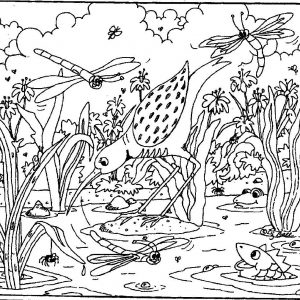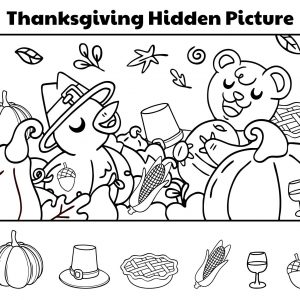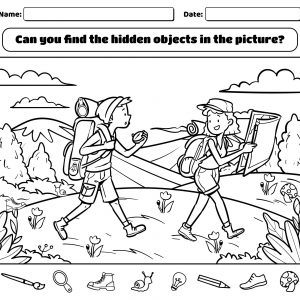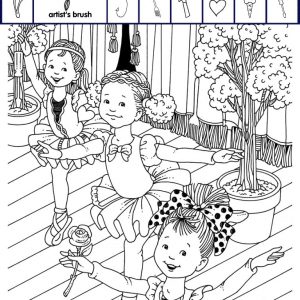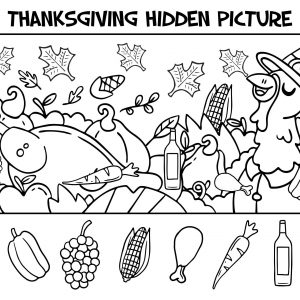The Power of Play: Exploring the Benefits of Childhood Fun and Imagination
Childhood is a time filled with endless possibilities. Whether it’s playing sports, engaging in creative play, or simply spending time outdoors, the experiences children have during these years shape who they become. The illustration before us beautifully captures a typical scene of childhood fun—children playing games, laughing, and enjoying each other’s company. This image, set in a playful outdoor environment, emphasizes the importance of social interaction, physical activity, and imaginative play in childhood development.
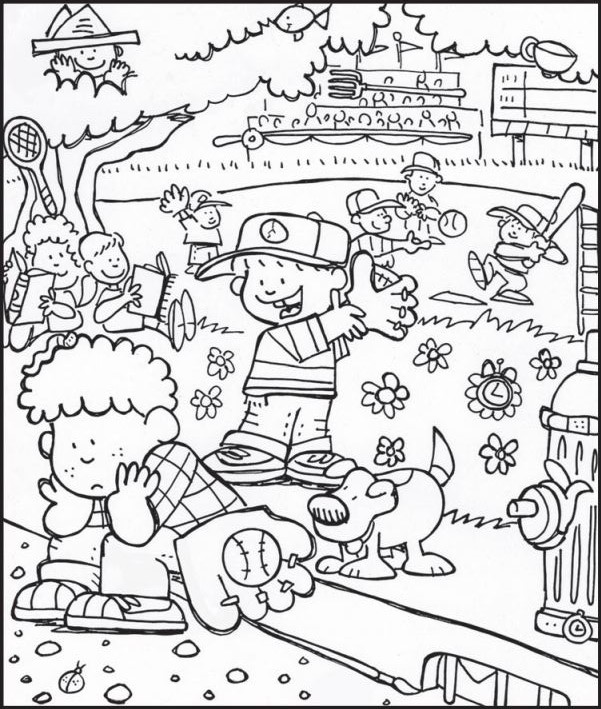
The Importance of Play in Child Development
Play is more than just an enjoyable activity for children—it’s crucial for their development. When kids engage in play, they are not only having fun, but they are also learning valuable skills that will help them throughout their lives. The activities depicted in this illustration—playing sports, engaging with animals, and interacting with friends—offer a variety of developmental benefits.
Social Skills Development Through Play
The children in the illustration are engaged in a shared experience, whether it’s playing a game of catch, running around, or interacting with their dog. These moments of collaboration and play are essential for developing social skills. When children play together, they learn how to communicate, take turns, negotiate, and resolve conflicts. These interactions lay the foundation for future relationships, teaching children how to navigate social dynamics in both personal and academic settings.
Through play, kids learn empathy by understanding the feelings of others and practicing care and consideration. By collaborating, they also develop teamwork skills, which are valuable both in school and later in life as they work in groups or cooperate in professional environments.
Building Emotional Intelligence Through Fun Interactions
Play also allows children to express and manage their emotions. Whether it’s celebrating a victory, feeling frustrated over a loss, or sharing a laugh, playtime gives children the opportunity to experience a range of emotions in a controlled environment. This emotional processing helps them learn how to handle feelings in healthy ways.
For example, the children in the illustration may feel excitement when they win the game or disappointment when something goes wrong. These emotional experiences, though part of the fun, help kids build resilience and develop emotional regulation skills that will serve them throughout life.

Physical Benefits of Active Play
While imagination and social skills are vital, the physical benefits of play should not be overlooked. In the image, the children are engaging in physical activities—whether it’s running around, playing with a dog, or interacting with sports equipment. These activities help children develop their gross motor skills and overall physical health.
Improving Coordination and Balance
Active play, especially when it involves sports or outdoor activities, enhances children’s coordination, balance, and fine motor skills. Whether they’re throwing a ball, jumping, or chasing after a dog, these movements help children improve their motor skills, contributing to better physical health and well-being.
Engaging in physical play also strengthens muscles and bones, improving overall fitness. The act of running, climbing, or even simply walking around builds strength, stamina, and cardiovascular health, laying the foundation for a lifetime of physical activity and wellness.
Encouraging Healthy Habits and Lifestyle Choices
The benefits of active play extend far beyond childhood. When children engage in physical activity at a young age, they are more likely to continue these habits into adulthood. Encouraging outdoor play and sports from an early age can foster a lifelong love of exercise and physical health. In the illustration, the kids are having fun and getting active—activities that are not only enjoyable but also essential for cultivating a healthy lifestyle.

Fostering Imagination and Creativity Through Play
In addition to physical and social development, play is a powerful tool for fostering creativity and imagination. The freedom to create stories, explore new ideas, and experiment with different scenarios helps children expand their thinking and learn to express themselves in unique ways.
Imaginative Play and Storytelling
In the scene depicted, one child is holding a bat, ready to play a game, while another child stands next to a dog, all amidst the bustling atmosphere of the playground. These elements invite children to create their own stories around the situation. Perhaps the child with the bat is imagining they’re in a big championship game, or maybe the dog is part of a playful adventure. This imaginative play allows kids to practice storytelling, enhancing their verbal and narrative skills.
By imagining different roles and scenarios, children develop their creativity. They are not just playing games—they are inventing worlds, telling stories, and exploring new ideas. This type of play enhances cognitive flexibility, as children learn to think outside the box and adapt to different situations.
Problem-Solving and Creative Thinking
The playful scenarios unfolding in the illustration also encourage problem-solving. If the child is playing catch and the ball is thrown too far, how will they retrieve it? If the children are interacting with the dog, what do they need to do to care for it and ensure it’s happy? These types of scenarios promote creative thinking as children figure out solutions to problems in a fun and imaginative context.
Problem-solving through play not only boosts cognitive abilities but also teaches children to approach challenges with a positive attitude and an open mind. These problem-solving skills will be valuable throughout their lives, from schoolwork to navigating social situations

Building Self-Confidence and Independence Through Play
Play is essential for building self-confidence and independence in children. The more opportunities children have to engage in different activities, the more they will learn about their strengths, interests, and abilities.
Self-Esteem Through Accomplishment
In the illustration, the children seem to be enjoying the process of the game, with one child clearly celebrating their victory with a big smile. These small accomplishments, whether it’s winning a game or overcoming a challenge, build self-esteem and confidence. Children begin to understand that their efforts lead to results, fostering a sense of pride in their abilities.
When children are encouraged to engage in play that challenges them, they learn to trust themselves and their skills. This confidence spills over into other aspects of life, encouraging them to tackle new challenges and take risks in a healthy way.
Learning to Be Independent and Resilient
Through play, children also learn the importance of independence. They can make decisions on their own, figure out how to organize games, and navigate obstacles without constant guidance. This autonomy helps children develop self-reliance and decision-making skills, which are essential for growing up and handling life’s challenges.

Conclusion: The Power of Play in Childhood Growth
The image of children playing together, sharing adventures, and enjoying each other’s company is a beautiful reflection of the power of play in childhood development. Through active play, children develop physically, socially, emotionally, and creatively, acquiring the skills they need to thrive in adulthood.
From improving physical health and motor skills to fostering imagination, problem-solving, and social interaction, playtime is an essential part of a child’s growth. Encouraging children to play, whether it’s outdoors, with friends, or in creative scenarios, is one of the most impactful ways to ensure they develop into confident, happy, and well-rounded individuals.
As we watch these children engage in their carefree, fun-filled activities, we are reminded of the simple joys of childhood. Play is not just about having fun—it’s about learning, growing, and exploring the world around us.
